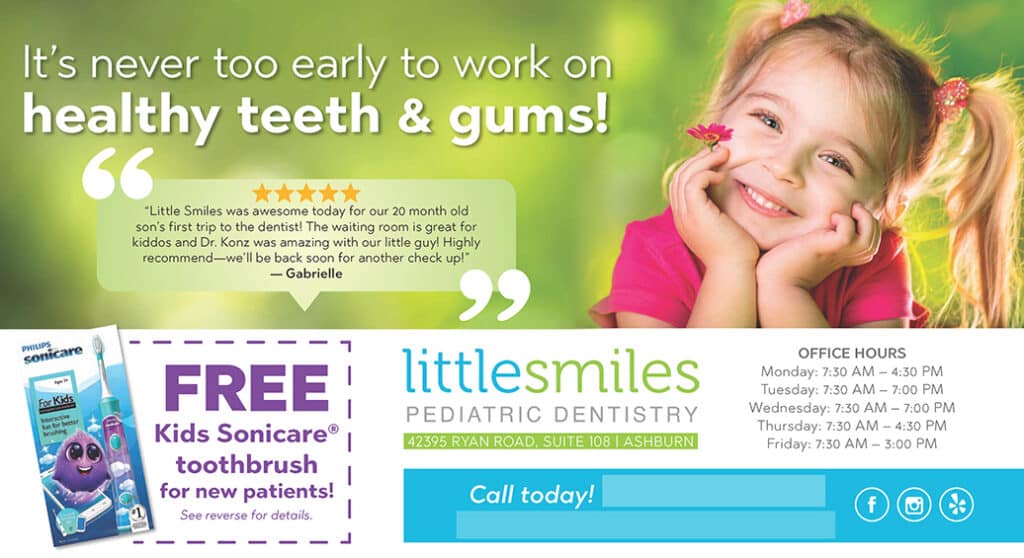Use SEO to Help Your Dental Practice Grow
If you’ve heard of any of the hottest marketing trends in recent years, you’ve undoubtedly heard of SEO, which has quickly become one of the most popular marketing tools in the world.
At least, so we’re told. Even today, 70% of businesses still have no SEO strategy.
For your practice, that’s great news. It means there’s less competition standing in your way, especially at the local level. Let’s talk about the importance of SEO for dentists and how to use it for your dental practice!
What Is SEO?
Search engine optimization (SEO) is the process of optimizing your website’s content for Google and other search engines, allowing you to rank higher for various searches. The higher you rank, the more traffic you’ll receive!
SEO is an attempt to rank higher in the organic results, which users tend to trust more than search ads. In many cases, this can lead to greater trust and higher conversion rates.
Also, the SEO process is completely different from paid ads. Instead of buying space at the top, you simply attempt to prove to Google’s algorithm that you have the most comprehensive, engaging, relevant, and user-friendly content for users.
How Does SEO Work?
Google and other search engines use software known as crawlers that index and rank hundreds of billions of pages on the web. They do this using a sophisticated algorithm that attempts to match the best content with users based on keywords and search intent.
This is why when you search for “dry cleaners” on Google while you’re in Maine, you don’t get results for dry cleaners in Virginia. Google understands that your search intent was likely to find dry cleaners near you, so it used your location as a factor in your search results.
Because of this, organizations and websites are constantly trying to compete with one another to rank ahead on various keywords and searches. To do this, they need to optimize their websites, content, and even off-page ranking factors. These are the three “pillars” of an SEO strategy.
Google wants to match the best content with users, but they need to understand a site’s credibility and usability before promoting its content. For this reason, Google uses over 200 ranking factors to determine the quality of a website. Most importantly, you should focus on page loading times, mobile-friendliness, and UX design.
To establish a site’s authority (credibility) on a topic, they rely on other websites to “vote” in their favor by linking to their content. These are called backlinks, and the more you have, the easier it will be to rank ahead of the competition in your given niche. From there, strong content that’s engaging and informative for users is all you need for SEO success!

How to Use Local SEO for Dental Practice
Now that you know how SEO works, you can see why it’s become such a popular dental marketing strategy. It’s great for driving organic traffic, but only if you know how to use it! Let’s talk about how to use local SEO for dentists.
Keyword Research
When we discussed matching keywords for searches, what was the first one that came to mind for your industry? Was it “dentist” or “dentist near me”? These are two of the most likely searches users would use if they are looking for a dentist in their area.
However, it’s best to diversify your keyword strategy. If your entire competition is trying to rank for these short-tail keywords, then it may be challenging to rank ahead of them, especially in the short term. For that reason, try adding long-tail keywords into your strategy for more immediate results!
Keywords like “dental practices in Boston, MA” or “root canal near me” are going to have less search volume than “dentist.” However, the people who search for these keywords are more relevant to your niche and more likely to convert into paying patients. Therefore, you should use a healthy mix of these keywords in your strategy.
Using your favorite online keyword research tool, find related keywords to your industry. You can also analyze your competitor sites on these tools to see which keywords they’re ranking for. This can help you diversify, generate new topic ideas, and more.
Don’t just go with the obvious ones. Use as many as possible that have decent search volume (use Google Trends to compare) and low competition. Once they’re on your website, there’s no limit to how much they can offer!
Update Your Website
It would reflect poorly on Google’s service if they were constantly promoting low-quality sites to their users, so their crawlers are constantly testing usability. Most importantly, they look for:
- Page loading times
- Mobile-friendly design
- Clean navigation system
- Proper page structure
- Internal and external linking structure
- Image optimization
- Metadata
The list goes on, but optimizing these site wide will go a long way toward improving your SEO campaigns. Without a strong website, you’re building a house on a broken foundation.
There are SEO tools available online to test these, and you should compare yours to your competitors to see what needs improvement. However, a lot of these tools will lead you down rabbit holes that are entirely unnecessary, so proceed with caution. If you want expert insights, always choose a professional SEO audit for the best results.
Build a Content Marketing Strategy
Dental marketing doesn’t have to be too tricky. You already have the industry knowledge that you need, allowing you to create or outline content, which can save you plenty of money by taking on some of the work yourself.
The easiest way to get started with content marketing is to start a blog. You can answer regular questions that your patients have and position your services as the solution. For example, you could have topics like:
- “Why do my teeth hurt? Common causes of tooth pain.”
- “Does a root canal hurt? The procedure explained.”
- “Dental implant vs bridge: What’s the difference?”
The list goes on. These are great ways to draw relevant traffic to your website. From there, you can answer their questions and let them know at the end about your services and how you can help with their problems.
Always end your posts with strong calls to action (CTAs), encouraging users to contact you or seek out your services. Just remember that you’re writing for potential patients, not search engines. Keep your content engaging and informative, and always try to eliminate fluff or filler content.
It’s good to have long-form, comprehensive posts that engage readers, but only if the content is clear and concise. Try breaking up walls of text, reducing wordy sentences, and always having something to say!
Off-Page SEO
Building backlinks isn’t too important for a local dental practice, but you do still need to worry about your off-page ranking factors. If you have local affiliates that can offer backlinks, they could give you an edge over the competition, but don’t stress too much about them. Instead, focus more on what’s in your control.
First, you should claim and optimize your listing on Google My Business. This could be the first thing users see when searching for dentists in your area. Answer all of the prompts on your profile and try to engage with users whenever possible.
Next, get listed on other local business listings or dentistry-specific listings, and keep all of your information consistent. Remember to update all of them if anything changes. All of this will help confirm to Google that you are who you say you are, but only if the information is accurate and consistent.
Also, because you have an official office, don’t forget to list your dental practice on Google Maps and other popular GPS systems. This can help in similar ways to Google My Business, but it will also help draw new users looking for dentists near them on the map. Google Maps may also show up as the first result when users search “dentists near me,”so make sure your practice is seen!
Start Ranking Your Practice Today
Now that you know how to use SEO for your dental practice, put these tips to use and get the most out of your strategy today. SEO takes time to come to fruition, so the sooner you start building your strategy, the sooner you’ll see long-lasting results.
Stay up to date with our latest digital marketing news for your practice and feel free to contact us with any questions or for help with your SEO strategy!

